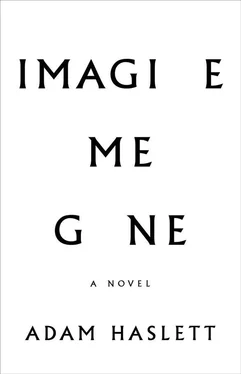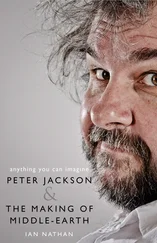There was nothing luxurious about those first months, no panning shots across a clothes-strewn floor leading to the couple naked atop the sheets. Even with as abject a lover as I was, she shied from displaying herself, hurrying instead into the shower when we were done, staying there for long stretches and emerging fully clothed. Her most comforting intimacy was ceasing to use my name and calling me Flipper instead. I had never earned an endearment before, and though its etymology was a mystery to me, I felt chosen each time she used it.
When at the end of the school year she needed a place to stay for the summer, naturally she moved in with me and my mother. She’d absconded with one of the college’s vacuum cleaners and derived some odd comfort from vacuuming our living room rug several times a week. My mother was attracted to the vacuum (unlike ours, it worked), but also wary after Alec, already a college freshman living with Aunt Penny in New York for the summer, characterized it as stolen during a rare home visit. It was the first new appliance to reach the household in years; its shiny yellow casing gave it the appearance of a probe sent from an advanced society to gather data on primitives. Caleigh wanted us to present ourselves to my mother as friends, which should likely have been another tip-off, but it defused awkwardness, so I was all for it. “Your friend likes vacuuming,” my mother would say to me when she got home from work. “She’s been at it again.” Having a guest clean the house might once have offended her sense of propriety, but she didn’t have it in her to make more than a token protest.
Once Caleigh had moved in and I no longer had to worry if I would see her every day, it began to dawn on me that she wasn’t just melancholy, she was about as depressed as I was, if not more so. But again, she didn’t want to talk about it. It doesn’t matter, she kept saying, which was a decent stand-in for her general approach to the world: all obligation was a chore, romance was a fraud, most days hurt, and the only real relief was music. We did read critical race theory articles together, and bemoaned the racial amnesia that hid the decline of black life-worlds behind endless civil rights hagiographies. So that was something. Truth be told, her depression was a comfort, giving me hope we might stay together awhile because there was so much it turned out that I needed to comfort her about.
In August, my mother went away to visit friends and Caleigh and I had that cursed house to ourselves. The month was one long heat wave. My mother didn’t believe in air-conditioning for herself or others, so in my bedroom at night, we’d place a fan a few inches from the mattress and leave it on high. At the bakery, several employees fainted quietly by the ovens. When I got home from work Caleigh and I would sprawl out in the living room, sweating like catfish, distracted even from our own misery, listening to nothing more taxing than ambient house. Celia or Alec would call now and then to check in, and I’d hear about her summer living in Berkeley, or his friends in New York. They’d gotten into colleges with better financial aid, where people drank less Michelob and listened to less Led Zeppelin, and where professors had seminars in their living rooms. I wouldn’t say that I resented them yet because I mostly just worried about how much pain they were in without knowing how to help them. But when they called, it did remind me, as if I needed reminding, that I was living in the house where I had once left them, my younger siblings, to fend for themselves, while they had somehow contrived more permanent escapes.
It would have been appropriate, even natural, I guess, if while I was there I’d dwelt on my father, but I had very few recollections of him and didn’t think about him much at all. This despite the fact that I had been seeing his old psychiatrist, Dr. Gregory, for some time already. I obviously couldn’t afford to pay him, but he’d never lost a patient to suicide before and was apparently guilty enough about it to ignore my nonpayment of his bills. He sent them, I threw them out, and on we went. Celia, asserting her newfound wisdom as a psychology major, said this was clinically unsound, but then she had more resources than I did, and tended toward self-confidence. His office was on the second floor of a small mansion on Marlborough Street in Back Bay. I sat in an upholstered leather chair in the middle of what must once have been a living room, Dr. Gregory’s cherrywood desk placed between two floor-to-ceiling windows with their long sashes and miniature balconies straight out of Edith Wharton, though he didn’t dress half as well as, say, Lawrence Selden in House of Mirth . No suits cut on the bias. No unstructured linen. It’s strange what people do and don’t do with their money. I would never have known he was a Midwesterner or a Methodist, but my mother used to accompany my father to his appointments and she’d gathered this intelligence early on (for her, a visit to a medical professional is first and foremost a social call). I talked to him mostly about psychoanalytic cultural criticism, theories of mass trauma, and occasionally my vicious bouts of panic that Caleigh would leave me imminently for a woman. He was a good listener, Dr. Gregory, and rarely interrupted me.
Perhaps also because of his guilt about my father, he had a quick draw with the prescription pad. This has proved fateful. At some point he introduced the term anxiety disorder into our discussion, and suggested a small dose of Librium, prn. When I told him it didn’t do much more for me than a Benadryl, he wrote me a script for something he described as “slightly more potent.”
I remember my first dose of Klonopin the way I imagine the elect recall their high school summer romances, bathed in the golden light of a perfect carelessness, untouched and untouchable by time’s predations or the foulness of any present pain. As Cat Stevens wrote, The first cut is the deepest, though I’ve always preferred Norma Fraser’s cover to the original (the legendary Studio One, Kingston, Jamaica, 1967). Stevens sings it like a pop song, but Fraser knows the line is true, that she’ll never love like that again. Her voice soars over the reverb like a bird in final flight. The first cut is the deepest. I’ve since learned all about GABA receptors and molecular binding, benzos and the dangers of tolerance, but back then I knew only that I had received an invisible and highly effective surgery to the mind, administered by a pale yellow tablet scored down the middle and no larger than an aspirin. There is so much drivel about psychoactive meds, so much corruption, bad faith, over- and underprescription, vagueness, profiteering, ignorance, and hope, that it’s easy to forget they sometimes work, alleviating real suffering, at least for a time. This was such a time.
I took my first pill as soon as I filled the script at the CVS in Copley, a few blocks from Dr. Gregory’s office. By the time I’d reached Newton Centre on the Green Line, I couldn’t stop smiling. The kind of big, solar smile that suffuses your whole torso, as if your organs are grinning. Soon I began to laugh, at nothing at all, pure laughter, which brought tears to my eyes, no doubt making me appear completely insane to the other passengers. But happier I have rarely been. For that hour and the three or four that followed, I was lifted down off a hook in the back of my skull that I hadn’t even known I’d been hanging from. Here was the world unfettered by dread. Thoughts came, lasted for whole, uninterrupted moments, and then passed away, leaving room for others. The present had somehow ceased to be an emergency. In fact, it seemed almost uneventful. Down the tramcar a gaggle of high schoolers snickered at my lunatic ways and I wasn’t even ashamed. It was as if their derision moved too slowly through this new atmosphere to reach me with any force. I neither envied nor despised them. Who was I? Steve McQueen? When I saw my used Cutlass turning into the parking lot at Woodlawn — Caleigh coming to pick me up — I waved to her sitting behind the wheel. She too looked at me like I was a sociopath. Since when do you wave? she said. Since I found out you could tear down the Berlin Wall with a Q-tip.
Читать дальше












